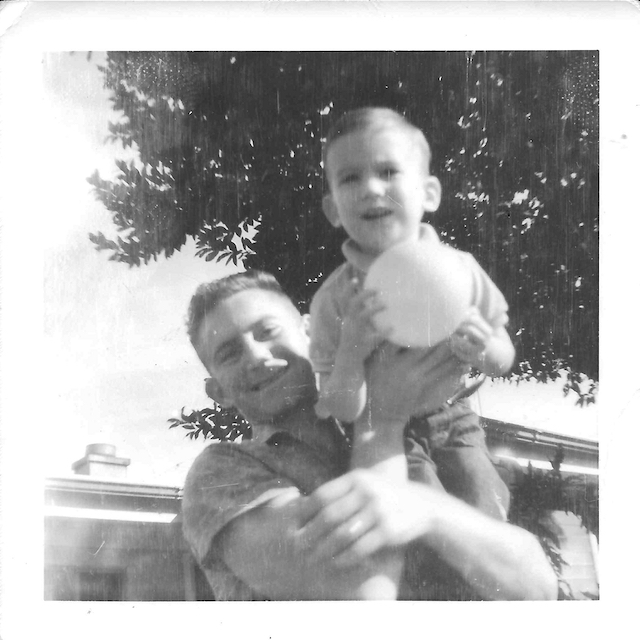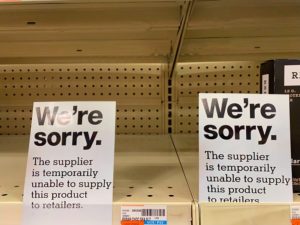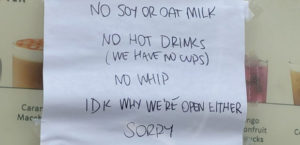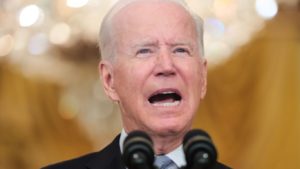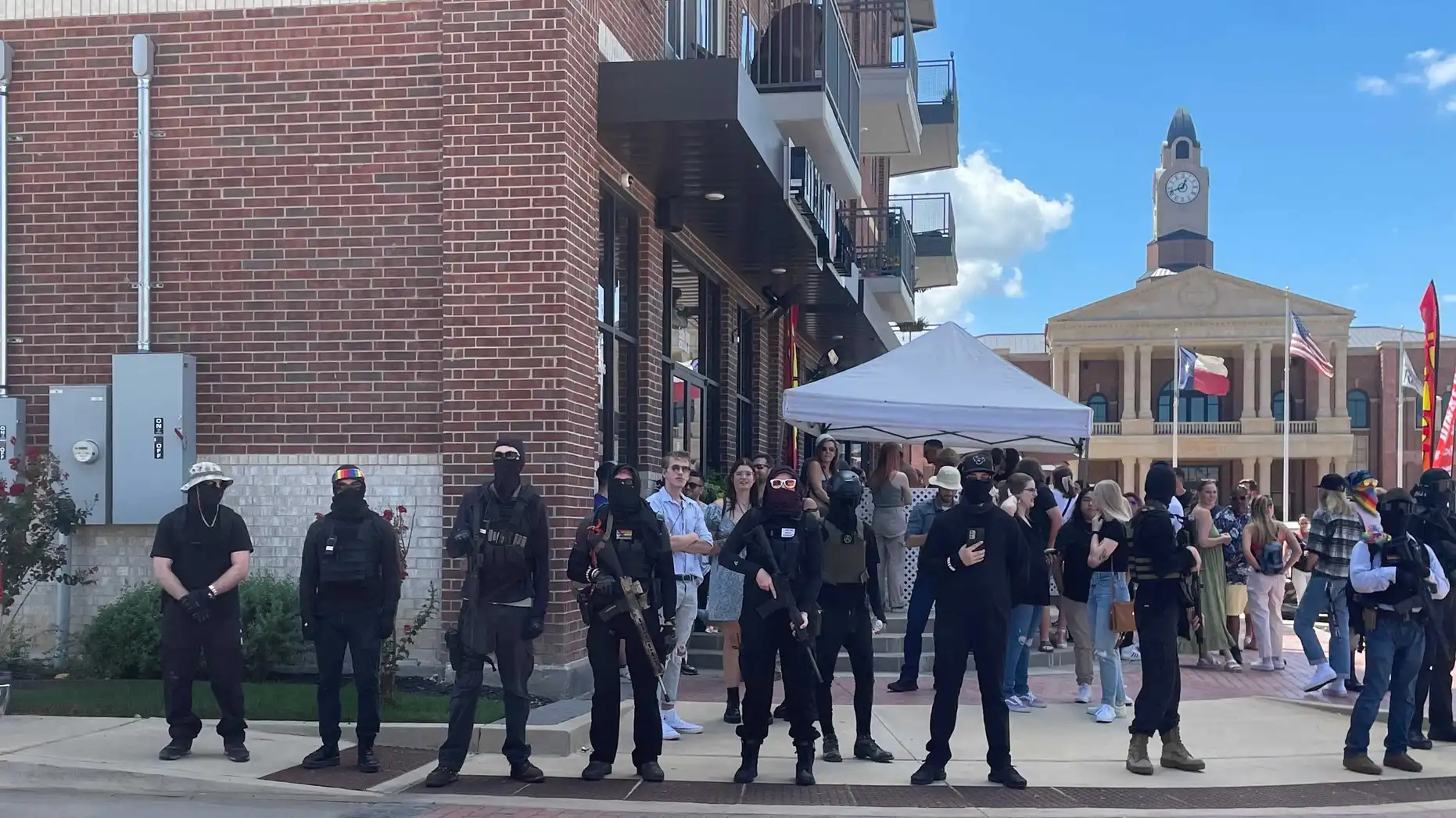
Antifa is looking a LOT more like the Fascists than the “Enemy” they’re supposed to be worried about.
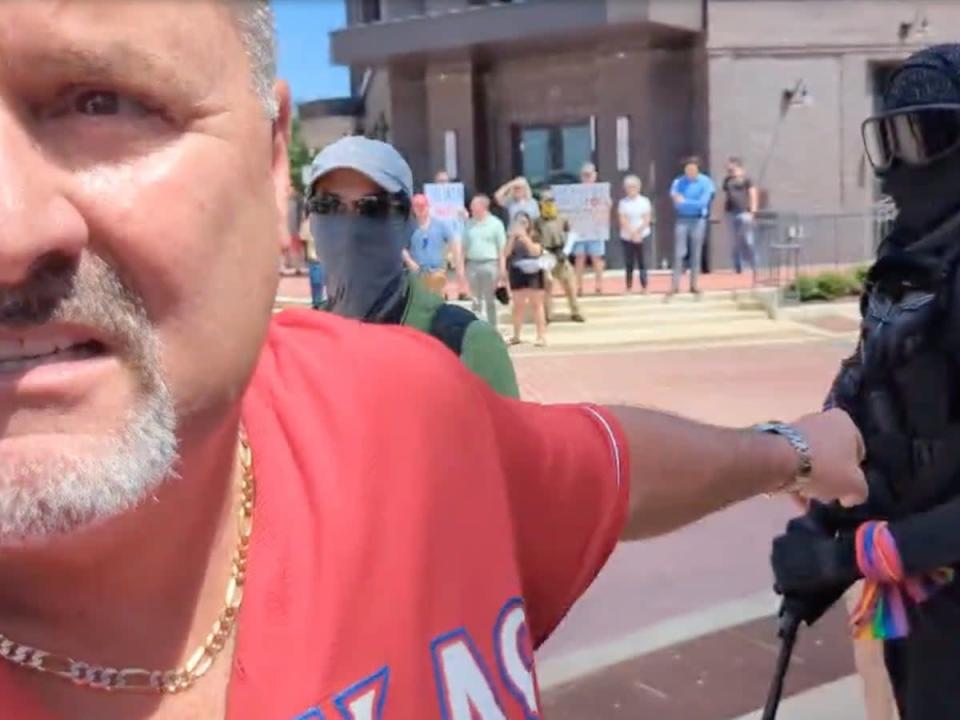
Of the two groups which looks more like a paramilitary group?
Are guns only bad when they’re in the hands of conservative leaning people? Is the take away that ANTIFA is protecting decency, which is arguable at best?
Was it ANTIFA that attacked the Federal Building in Portland or not? Weren’t they the folks blinding officers and throwing fire bombs trying to kill folks assigned to protect the Federal Building?
Who was it that beat Andy Ngo damn near to death? Oddly it wasn’t normal law abiding folks. But apparently that’s to be swept under the rug.
This is all about a drag show for children in Texas.
I never thought I’d be writing a sentence that contained the words Drag Show and Children in it.
WTF?
I remember being in a gay bar late one night in Laguna Beach where a child came up to the 6’5” tall, muscular as all hell, ex military demolition specialist, doorman, asking for help.
The doorman scooped this frightened child up off the ground, walked into the bar told the bartender to stop selling booze, the Saturday Night Crowd made a path to the bar. The whole downstairs bar emptied out and this scary giant of a man, tended ever so gently to the child’s scrapes.
In his deep baritone he asked what had happened.
When he and several others nearby who were providing wet clean towels, who’d grabbed the first aid kit, and an unimpaired RN, heard;
“Daddy and Mommy are fighting bad”
The doorman very gently asked, “Can you tell me where they are?”
“We’re on vacation. The hotel is across the street. I came over here because it sounded happy.”
“Are they still fighting?”
“I guess so, they fight a lot.”
“Okay little one, I’ll go check on them.”
He and several other men went to the door. Over his shoulder he called to a bartender, “Get some juice for her, don’t sell any booze while she’s here, and call the police.”
There are a lot of things that made me proud of the community that night. The short list is this.
The men that followed the doorman out all knew how to handle themselves. They were either military, ex military, bikers or fighters of various stripes.
All the men in the bar stopped drinking
They all put their glasses on the upper Bar
They changed the music to something happy but not blaring.
The patrons adopted proper decorum and spoke quietly among themselves.
After 10 minutes, the doorman came back with bloodied knuckles, carrying a small boy who’d obviously been smacked around, followed by a dazed battered woman.
Without question the RN moved on to address the bruises and scrapes on the woman and little boy. The doorman, with easy familiarity grabbed a clean bar towel, filled it with ice from behind the bar and wrapped his right fist.
The little boy was watching the doorman closely, obviously curious about the towel and ice.
The doorman, smiled. He got up and made a smaller towel with a little bit of ice. He handed it to the little boy, “Hold this against your eye. It might hurt at first but the cold will make it feel better.”
The doorman rewrapped his fist and sat quietly watching the RN taking care of his patients. Eventually the RN got to the doorman’s scrapes & cuts.
The doorman tried to wave the RN away.
“Thad, let me do my job!”
The doorman sighed, “Okay, but I’m fine.”
The police arrived. They were obviously a little stunned. Usually, when they came into the bar it was rowdy and they were enforcing a noise complaint. Yet this time, the lights were on full and everyone was quiet and respectful.
The doorman, spoke briefly to them. A few minutes later an ambulance pulled up in front of the hotel.
Statements were taken and the woman and her children left with the police. Before they left, the children ran back to the table where the doorman was sitting and climbed onto him. They hugged him tight and he hugged them back with tears brimming.
“You’re going to be alright children. Take care of your mommy.”
Their mom said, “Thank you so much,” then collected her kids and left.
That is the gay community I remember. Yes, hated by many, but good men and women.
We at the time, were fighting for our equal place in society. We knew that equality would only come when we demonstrated in all other respects, except who we peopled our bed with, we were just like everyone else.
Drag shows are not the place for children. Gay bars are not the place for children. The LGB community knew that instinctively without question. The story above illustrates that simple fact.
What the fuck has happened to this community? Just because we were outliers then doesn’t mean we have to keep being outliers.
I know of no folks in the LGB community who would think for an instant that a Drag show should be attended by children. It’s adult entertainment for adults. You wouldn’t take children to a strip show. You wouldn’t take children to a bar with half naked go go boys dancing on the bar.
Hell, if you’re a responsible person you wouldn’t even show a movie with such depictions to children.
It’s not even about morality or puritanical religious squeamishness.
It’s about protecting a child’s innocence!
We all find our various kinks when we’re of age, when we’re ready for it, and when we’re old enough to handle it.
Let a child be a child, for God’s sake!
Then we have in Texas, a drag show with armed ANTIFA in black out clothing forming a perimeter. What the hell kind of message does that send?
What does a child think of that?
Especially after Uvalde and all the noise about AR-15s being dangerous. ”Only bad people carry AR-15s, run and hide if you see someone with one of those”.
Then 6 weeks later that same parent is saying, “come on in here don’t worry about the rifles.”
You’ve already got a confused child, then you subject them to bad drag.
If that doesn’t cause a fear of clowns and makeup, I’ll be surprised.

It’s long past time for the LGB community to stand up. It’s time for us to put a stop to this because we’re uniquely in a position to do so. The trans activists have hitched their wagon to the LGB community and the community has allowed it.
So now it’s our responsibility. We allowed this mess to be made it’s on us to clean it up!
Are we willing to let everything we fought so hard to gain be corrupted and stripped away by the actions of a fringe group of trans activists?
Are we willing to be shamed back into the closet by 1% of the population who simply choose to hitch their wagon to ours?
Will we allow all that we’ve accomplished to be degraded back to things like; Gays can’t marry, can’t have jobs, can’t have places to live, sodomy laws, and all that we managed to fix so that we can be thought of as equal?
I for one refuse!
I like being LGB and being treated with respect and normalcy. I like being able to get my freak on without worry of someone ratting me out to the cops for immoral behavior.
This trans activist bullshit has got to stop.
There are things that Trans folks need to have addressed. But not everyone is Trans!
How dare Trans activists imply that if someone likes the same sex they’d be happier transitioning to the opposite sex. There are little boys and little girls right now who would probably grow up CIS and LGB and be quite happy about it.
Those children deserve to discover their preferences in their own time, in their own way. How many boys and girls will have that joy of discovery ripped away from them by people deciding for them?
Isn’t that the same thing the Trans activists are saying is so wrong, when they say things like a Doctor assigns sex at birth?
Where have all the heroes gone? I’m sure as hell not a hero but if I’m all there is, then I’ll do my best.

Thad – where ever you are now. 40 some odd years ago, you taught a green young man being gay or bi didn’t make you less a man, as men we still had responsibilities to protect those who couldn’t protect themselves. You taught me that gay or bi didn’t have to be my whole personality, it was just a part of who I was. You gave me a memory of decency and strength. I’m eternally grateful.

